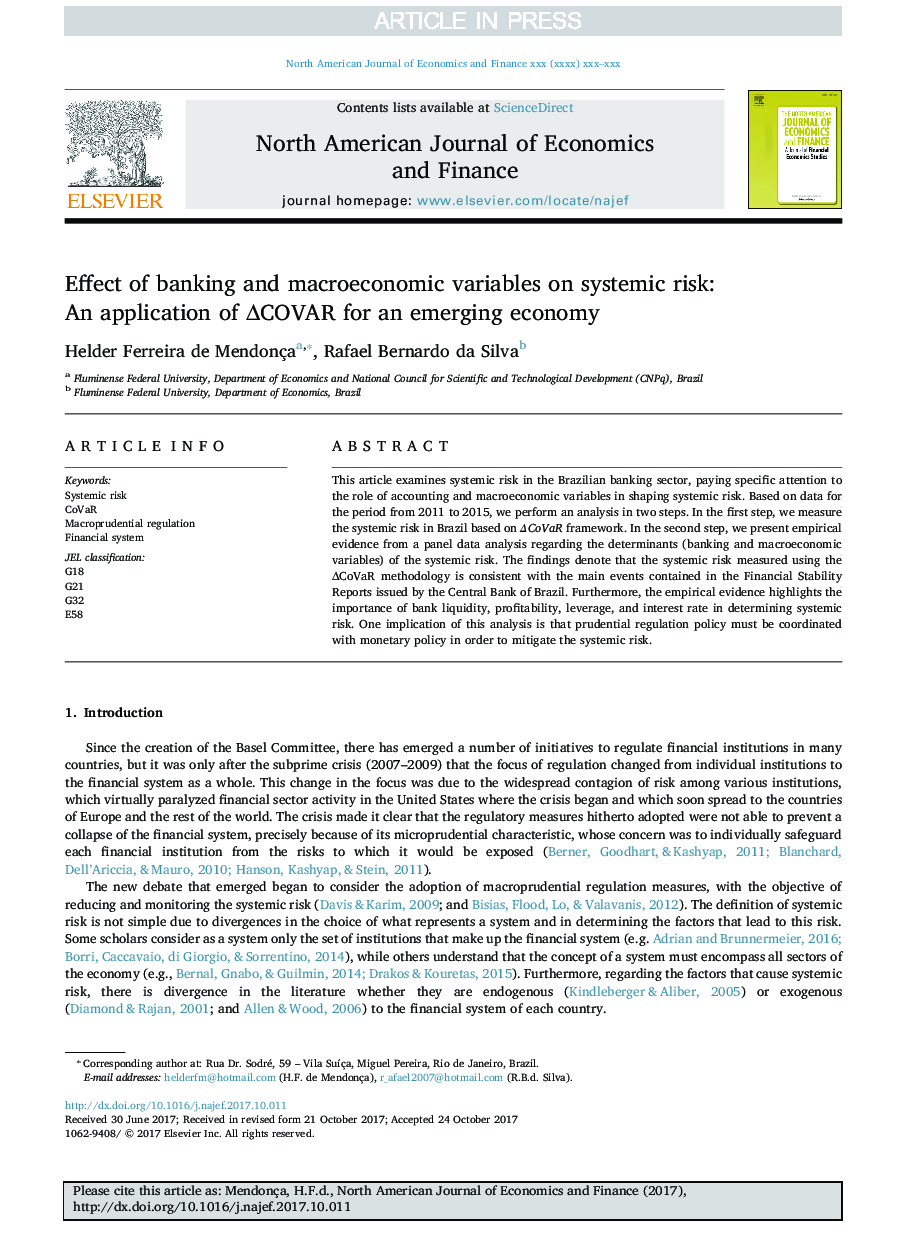| Article ID | Journal | Published Year | Pages | File Type |
|---|---|---|---|---|
| 7373887 | The North American Journal of Economics and Finance | 2018 | 17 Pages |
Abstract
This article examines systemic risk in the Brazilian banking sector, paying specific attention to the role of accounting and macroeconomic variables in shaping systemic risk. Based on data for the period from 2011 to 2015, we perform an analysis in two steps. In the first step, we measure the systemic risk in Brazil based on ÎCoVaR framework. In the second step, we present empirical evidence from a panel data analysis regarding the determinants (banking and macroeconomic variables) of the systemic risk. The findings denote that the systemic risk measured using the ÎCoVaR methodology is consistent with the main events contained in the Financial Stability Reports issued by the Central Bank of Brazil. Furthermore, the empirical evidence highlights the importance of bank liquidity, profitability, leverage, and interest rate in determining systemic risk. One implication of this analysis is that prudential regulation policy must be coordinated with monetary policy in order to mitigate the systemic risk.
Related Topics
Social Sciences and Humanities
Economics, Econometrics and Finance
Economics and Econometrics
Authors
Helder Ferreira de Mendonça, Rafael Bernardo da Silva,
